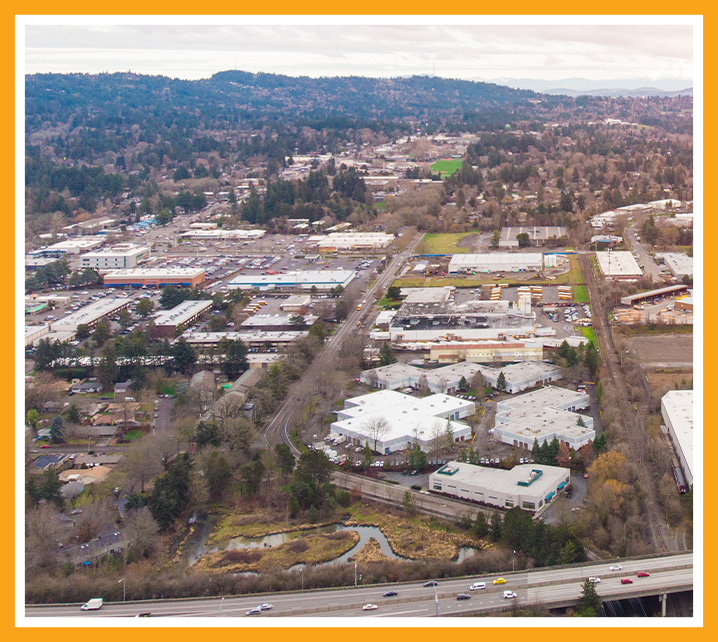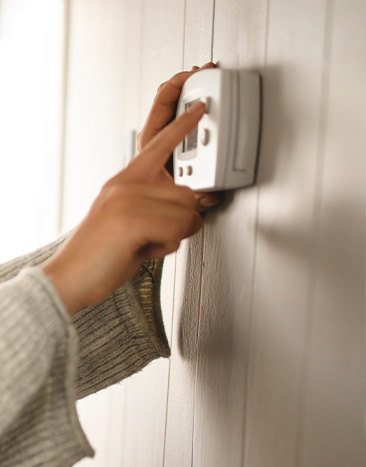
HVAC Company in Happy Valley
Trusted HVAC Services for Your Home and Business
At Oregon Heating & Air Conditioning, LLC, we pride ourselves on delivering top-notch HVAC services in Happy Valley and the surrounding areas. Our offerings include a comprehensive range of residential and light commercial HVAC solutions, all designed to enhance your comfort while being mindful of your budget. Whether you require routine maintenance, prompt repair, or a complete system installation, our HVAC company is dedicated to providing options that meet your specific needs.
As a licensed, bonded, and insured HVAC company, we adhere to the highest standards of quality and professionalism. Our commitment to energy-efficient technologies ensures that your systems not only run smoothly but also help you save on energy costs. We believe in transparency and provide free estimates for installations and replacements, ensuring you have all the information to make informed decisions about your HVAC needs. That's what makes us the HVAC company Happy Valley residents trust.
Understanding the unique requirements of Happy Valley residents, our HVAC company is equipped to handle the diverse climate challenges the area presents. From high humidity levels that may strain air conditioning units to the cold, damp winters requiring efficient heating systems, our solutions are tailored to ensure optimal performance regardless of the season. We offer comprehensive service plans that include seasonal maintenance, ensuring your HVAC systems are prepared to handle the local weather conditions effectively.
Your Comfort is Our Priority. Contact us at (971) 444-6310 or fill out our online form.

Frequently Asked Questions
Can I Fix Our HVAC Myself?
While there are some very basic maintenance tasks a homeowner can handle, such as changing air filters or clearing debris around the outdoor unit, most HVAC repairs should not be attempted by someone without professional training and certification. HVAC systems involve complex electrical components, refrigerant, and sometimes gas lines, all of which can be dangerous if mishandled, potentially leading to electric shock, fire hazards, or refrigerant leaks that are harmful to both your health and the environment. Additionally, attempting DIY repairs can often void the manufacturer's warranty on your system, leading to more significant costs down the line if further issues arise. For your safety and the proper functioning of your HVAC system, it's always best to rely on qualified professionals for any repairs beyond very basic maintenance.
How Do I Know When To Repair Or Replace My HVAC?
Deciding whether to repair or replace your HVAC system often hinges on its age, the frequency and cost of recent repairs, and its energy efficiency. If your system is older than 10-15 years and requires frequent, costly repairs, replacement is likely more economical in the long run due to improved energy efficiency and avoiding future breakdowns. However, if the system is relatively new and the problem is a minor, isolated issue, repair might be the better option; a general guideline is that if repair costs exceed half the value of a new unit, replacement should be seriously considered.
What Should You Consider When It Comes To Getting A New HVAC Installed?
When getting a new HVAC system installed, several factors warrant careful consideration to ensure optimal performance and efficiency for your needs in the local climate. Proper sizing of the unit based on your home's square footage, insulation, and window placement is crucial to avoid under- or over-sizing. Consider the energy efficiency ratings (SEER for cooling, AFUE for heating) to minimize energy consumption and long-term operating costs. Research different brands and models for reliability and features that align with your comfort preferences and budget, and ensure the contractor you choose is reputable, licensed, and experienced for a proper installation.
How Long Does A Typical HVAC Installation Take?
The duration of a typical HVAC installation can vary depending on several factors, including the complexity of the system, the size of your home, and whether it's a simple replacement or a new installation requiring ductwork. Most standard replacements of a central AC unit or furnace can be completed within four to eight hours. However, if both the furnace and air conditioner are being replaced, or if ductwork modifications or installations are necessary, the process could take a full day or even up to two days in more complex situations.
What Benefits Does HVAC Maintenance Provide?
Regular HVAC maintenance offers numerous benefits, primarily ensuring the system operates at peak efficiency, which can lead to lower energy bills and reduced strain on components. Consistent upkeep helps extend the lifespan of your HVAC system by catching and addressing minor issues before they escalate into costly repairs or premature system failure. Furthermore, maintenance improves indoor air quality by ensuring clean filters and properly functioning components, contributing to a healthier living environment and maintaining the validity of the manufacturer's warranty in many cases.
How Can I Improve My HVAC System's Energy Efficiency?
Improving the energy efficiency of your HVAC system begins with regular maintenance and utilizing energy-saving technologies. Our team recommends scheduling routine check-ups for your HVAC units to keep them in peak condition. We also install high-efficiency systems designed to minimize energy consumption and reduce utility bills, providing greener, more sustainable, and energy-efficient solutions for your home or business.
How Often Should I Service My HVAC System?
Regular servicing of your HVAC system is crucial to maintaining its efficiency and longevity. We recommend scheduling maintenance at least twice a year, typically in the spring and fall, to ensure your system is ready for peak usage during summer and winter months. Regular maintenance checks help address any potential issues early, prevent significant repairs, and sustain an energy-efficient operation.
Work with your local team of experts!
-
Quality Materials & Craftsmanship
-
Over 20 Years of Experience
-
Punctual & Responsive
-
Customer Care Focused
Oregon Heating & Air Conditioning, LLC's Blog
- How to Maintain Your HVAC System in Winter
- The Importance of Timely Furnace Repair

